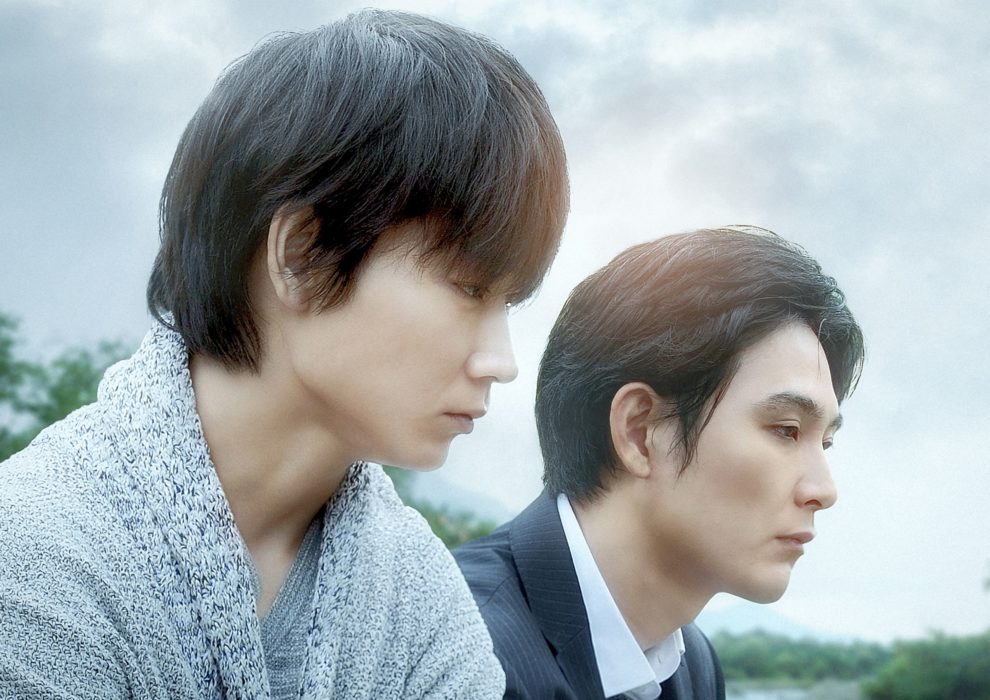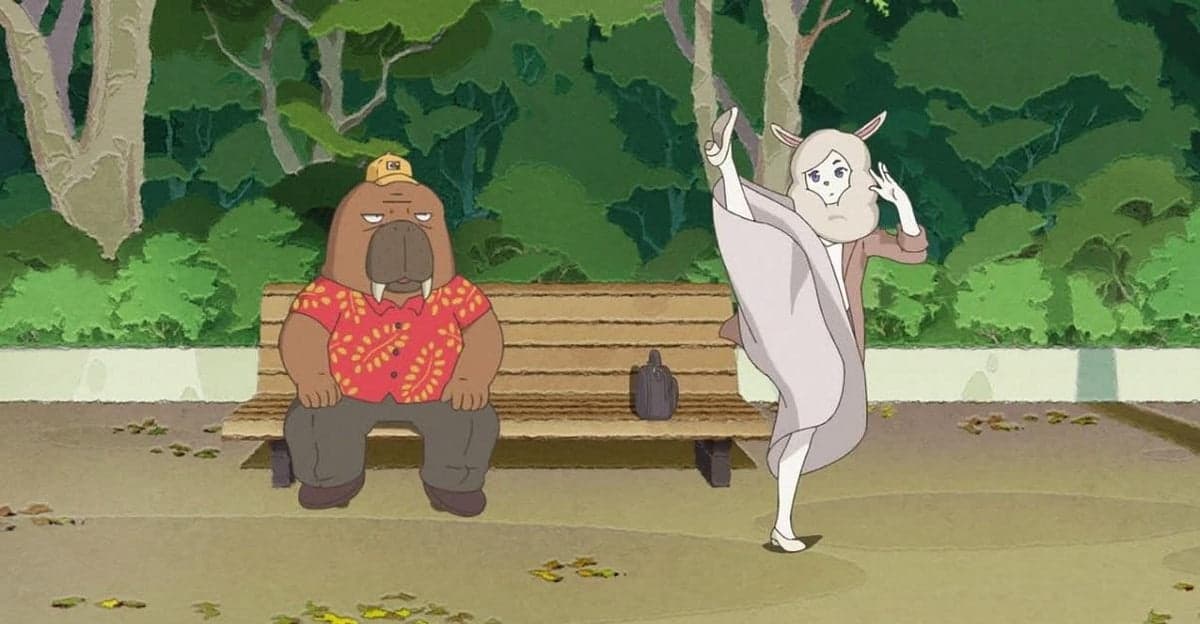After the extremely successful “Rurouni Kenshin”-series, Keishi Otomo returns with a low-key queer drama named “Beneath the Shadow”. Known for his spectacular blockbuster appeal, Otomo shows a different side by adopting the Akutagawa Prizewinner novel “Eiri”. The story is set in the director's hometown of Morioka, which points to a very personal approach.
“Beneath the Shadow” is screening at New York Asian Film Festival

The two-hour-long plot evolves around Konno (Go Ayano) and Hiasa (Ryuhei Matsuda). Konno just moved in from Tokyo on behalf of his pharmaceutical employer and befriends his work colleague Hiasa. One day, Hiasa disappears for no reason. When he returns, a dark secret is unveiled and intervenes with the entanglements of the 3/11 aftermath.
Right from the start, slow-paced storytelling and a cinematography that takes over most of the narration, draw a picture of a very local movie. The contrary protagonists, Konno as the introverted bookworm and Hiasa as the rebel type, only share their loneliness. Besides drinking sprees, fishing is an important activity that strengthens the bond between the thirty-year-old men. Konno starts to peel out his shell and even joins a dance group. Here the film stretches the same kind of community aspect seen in Naomi Kawase's portrays of youth (e.g. “Shara” 2003).
Otomo avoids heavy dialogue and trusts subtle camerawork, which captures the cityscape and the surrounding nature very well. The concept of realism is further stretched by a non-existent soundtrack. Concerning the long runtime of “Beneath the Shadow”, this presentation can feel a little tiring in certain moments. The first 35 minutes are only about the bonding and the process of attachment. Konno starts to open up and Hiasa seems like a nice, sometimes crazy, guy. His disappearance marks the crack of the idyll. It is not until the last 20 minutes before we know what is actually going on. Therefore, the film needs a lot of patience.
Go Ayano (“The Light Only Shines There”) also needs a little while to warm up his acting skills. Although he fits the role of the quiet and shy Konno, his performance lacks of thoughtfulness. This is all forgotten in the last part of the movie when his character erupts in a stream of emotions. Ryuhei Matsuda (“Blue Spring“) as Hiasa is the real frontrunner of the cast and radiates a strong presence on screen. Also mentionable is the appearance of veteran actor Jun Kunimura, who makes a small but solid entrance as Hiasa's father.
One of the main topics of “Beneath the Shadow” is attachment. When and how can you open yourself up to someone? The whole idea of making yourself vulnerable by revealing your true feelings is mixed with the topic of LGBT and queer appreciation. Trust, betrayal, exploitation, and desire are themes that are discussed in the course of the story. The motives of family and friendship also remind of Yuichi Hibi's con artist drama “Erica 38”
All in all, Keishi Otomo aims for a social drama that is too ambitious. Looking at the single aspect itself, the presented ideas (e.g. about the emotional world of a young man in love or the effect that nature can have on a person) are interesting. But in combination, the script fails to put them in the right tempo. Nevertheless, “Beneath the Shadow” ends with a rewarding sequence that makes up for almost every little slip beforehand.















